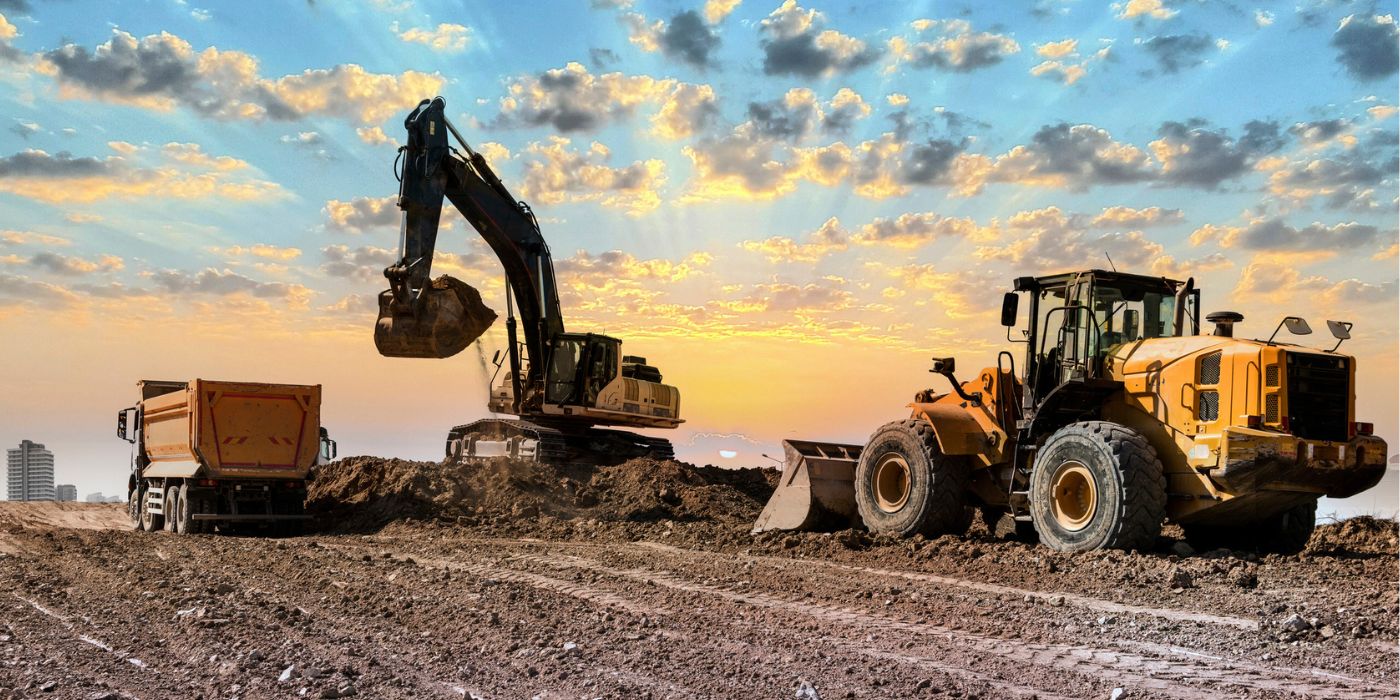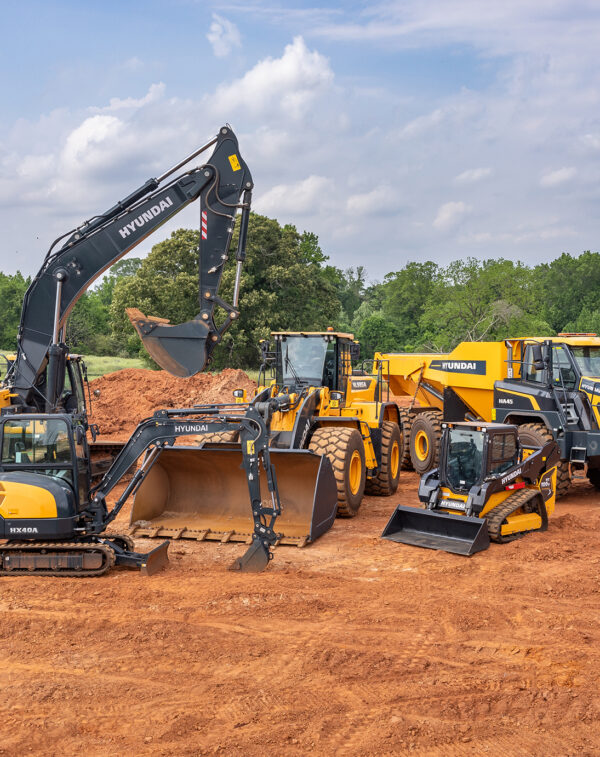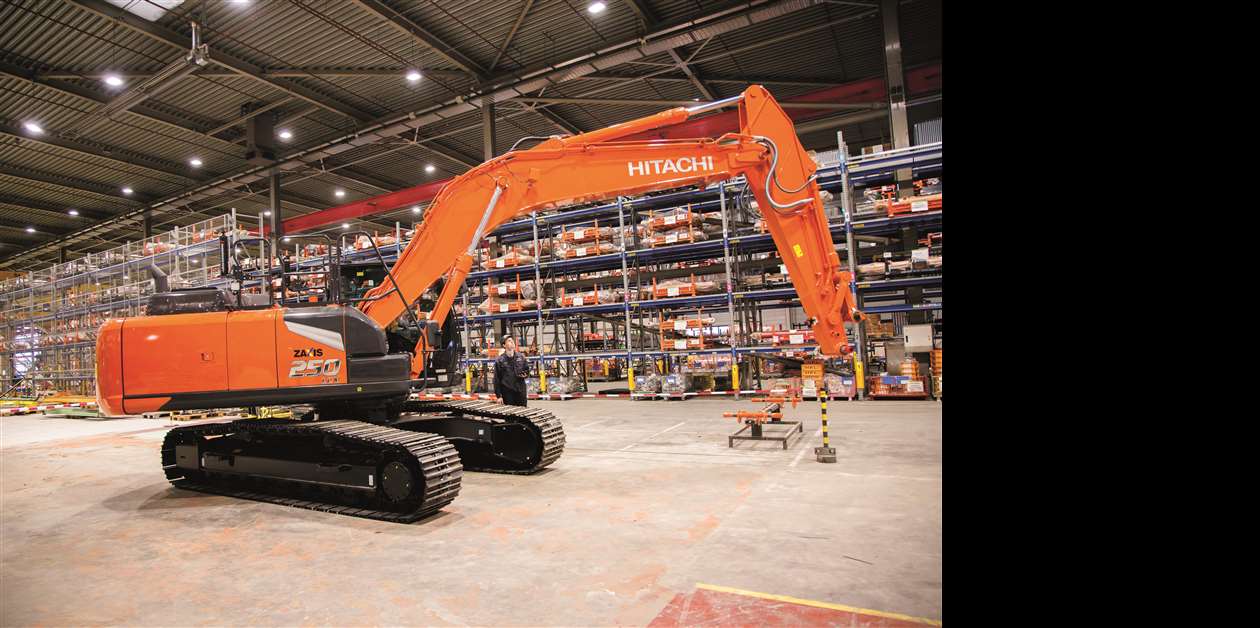Checking Out the Financial Advantages of Leasing Construction Devices Contrasted to Owning It Long-Term
The decision between possessing and renting out building and construction tools is crucial for monetary administration in the market. Renting deals instant expense financial savings and functional versatility, enabling companies to allocate sources a lot more effectively. Recognizing these subtleties is crucial, especially when taking into consideration exactly how they align with details job needs and economic methods.

Cost Comparison: Renting Vs. Possessing
When reviewing the economic ramifications of possessing versus renting out construction equipment, a thorough price contrast is necessary for making notified decisions. The selection in between having and renting can considerably impact a firm's lower line, and comprehending the connected prices is crucial.
Renting out building and construction devices typically entails reduced upfront expenses, enabling companies to assign resources to other operational demands. Rental prices can accumulate over time, potentially exceeding the expenditure of ownership if equipment is needed for an extended period.
On the other hand, possessing construction devices calls for a substantial initial financial investment, together with ongoing costs such as insurance coverage, funding, and devaluation. While ownership can result in long-lasting financial savings, it additionally locks up capital and may not offer the exact same degree of flexibility as renting. Additionally, owning equipment necessitates a commitment to its usage, which might not always straighten with task needs.
Inevitably, the choice to have or lease must be based upon a comprehensive evaluation of details task demands, economic ability, and long-lasting calculated objectives.

Maintenance Expenses and Obligations
The option between leasing and owning construction equipment not only entails financial considerations but additionally incorporates recurring upkeep costs and obligations. Having equipment requires a substantial dedication to its upkeep, which consists of routine examinations, repair work, and potential upgrades. These responsibilities can quickly gather, bring about unforeseen costs that can stress a spending plan.
In comparison, when leasing equipment, upkeep is usually the responsibility of the rental firm. This plan permits service providers to stay clear of the financial burden connected with deterioration, as well as the logistical obstacles of scheduling repairs. Rental arrangements typically include stipulations for maintenance, meaning that service providers can concentrate on completing jobs rather than stressing over devices problem.
Additionally, the varied variety of tools offered for rent makes it possible for business to pick the current models with sophisticated innovation, which can boost effectiveness and productivity - scissor lift rental in Tuscaloosa Al. By selecting services, companies can stay clear of the long-term obligation of tools devaluation and the associated maintenance frustrations. Inevitably, evaluating maintenance expenses and duties is vital for making an educated choice about whether to own or rent building and construction equipment, substantially influencing overall project expenses and functional performance

Devaluation Influence On Possession

A significant aspect to take into consideration in the decision to own building devices is the effect of devaluation on total ownership costs. Depreciation represents the decline in worth of the tools over time, influenced by elements such as use, damage, and developments in innovation. As tools ages, its market price decreases, which can substantially influence the proprietor's financial position when it comes time to trade the devices or market.
For construction companies, this devaluation can convert to considerable losses if the devices is not over here used to its max capacity or if it lapses. Proprietors need to represent depreciation in their economic forecasts, which can result in higher total expenses compared to renting out. Furthermore, the tax effects of devaluation can be complex; while it might offer some tax advantages, these are typically offset by the fact of minimized resale value.
Ultimately, the worry of depreciation stresses the value of comprehending the long-term monetary commitment included in owning building and construction equipment. Firms should carefully examine just how commonly they will utilize the tools and the prospective economic impact of depreciation to make an enlightened choice regarding possession versus leasing.
Economic Flexibility of Leasing
Renting out construction devices supplies considerable monetary flexibility, enabling business to allot resources extra efficiently. This versatility is specifically essential in a market identified by fluctuating project demands and differing work. By deciding to rent, services can stay clear of the considerable funding expense needed for purchasing devices, maintaining cash money flow for other operational demands.
In addition, renting out equipment enables companies to tailor their devices options to specific project requirements without the long-lasting commitment connected with ownership. This indicates that services can conveniently scale their tools inventory up or down based on expected and present job requirements. Subsequently, this versatility decreases the risk of over-investment in equipment that may end up being underutilized or obsolete with time.
One more monetary benefit of leasing is the possibility for tax obligation benefits. Rental payments are typically thought about operating costs, permitting immediate tax obligation deductions, unlike depreciation on owned and operated tools, which is topped a number of years. scissor lift rental in Tuscaloosa Al. This instant expense acknowledgment Click This Link can additionally improve a firm's cash advice money setting
Long-Term Job Considerations
When assessing the long-lasting needs of a building organization, the choice between owning and renting devices ends up being much more complex. Trick variables to think about include task duration, regularity of usage, and the nature of upcoming jobs. For jobs with extended timelines, buying equipment might seem useful due to the possibility for lower total prices. Nonetheless, if the equipment will certainly not be used continually throughout jobs, owning might bring about underutilization and unnecessary expense on maintenance, insurance, and storage space.
Furthermore, technical advancements pose a considerable factor to consider. The building and construction industry is evolving rapidly, with new devices offering boosted efficiency and safety features. Leasing permits firms to access the current technology without devoting to the high upfront costs connected with investing in. This adaptability is particularly advantageous for companies that take care of varied tasks calling for various sorts of equipment.
In addition, economic stability plays a critical role. Possessing equipment usually requires substantial capital investment and devaluation worries, while leasing permits even more foreseeable budgeting and capital. Ultimately, the selection in between leasing and owning ought to be straightened with the tactical goals of the construction organization, taking right into account both expected and current job needs.
Conclusion
In verdict, renting out construction equipment uses significant economic advantages over long-lasting ownership. Eventually, the choice to rent instead than very own aligns with the vibrant nature of building and construction tasks, permitting for flexibility and access to the newest devices without the monetary problems connected with ownership.
As devices ages, its market value decreases, which can dramatically influence the proprietor's economic placement when it comes time to trade the devices or offer.
Renting construction equipment offers significant financial adaptability, permitting firms to designate sources a lot more effectively.In addition, renting equipment enables firms to customize their tools options to certain job demands without the long-term commitment associated with possession.In verdict, leasing construction equipment supplies significant monetary advantages over lasting possession. Ultimately, the decision to rent rather than own aligns with the vibrant nature of building tasks, allowing for adaptability and access to the most recent equipment without the economic concerns connected with ownership.